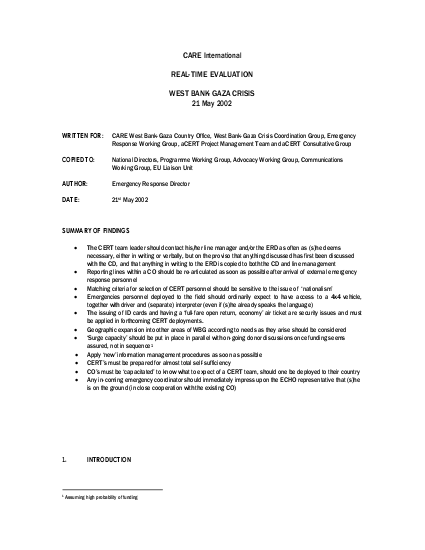
This report examines the work of CARE West Bank and Gaza (WBG) in food security, water and sanitation, and health during the most recent intifada (‘uprising') which started in September 2000. CARE WBG undertook both development and relief activities (though arguably these two distinctions are not useful in this particular project context), and worked in a broad scope of sectors, across a large portion of the territory. All the projects within this overall response programme aimed to address the crisis as best as possible. It was difficult to measure the impact of the programme, given that activities, locations and beneficiaries varied widely.
This review is loosely based on a final evaluation format, but is purposely titled a Strategic Review because it makes recommendations on new strategic directions for CARE WBG, given that the conflict in the region is ongoing and difficult to predict. The review makes recommendations such as re-focusing on poverty reduction and root causes, more than on short-term emergency activities, including a combination of advocacy, development approaches (focusing on livelihoods and poverty reduction) and creating an emergency preparedness and response capacity. As well, a second salient recommendation for CARE WBG is to choose to build on its presence and experience in areas in which it has already been working (e.g. Jenin and Gaza) and to design ‘integrated area development' projects, based on its three priorities: livelihoods, emergency preparedness and response, and advocacy.